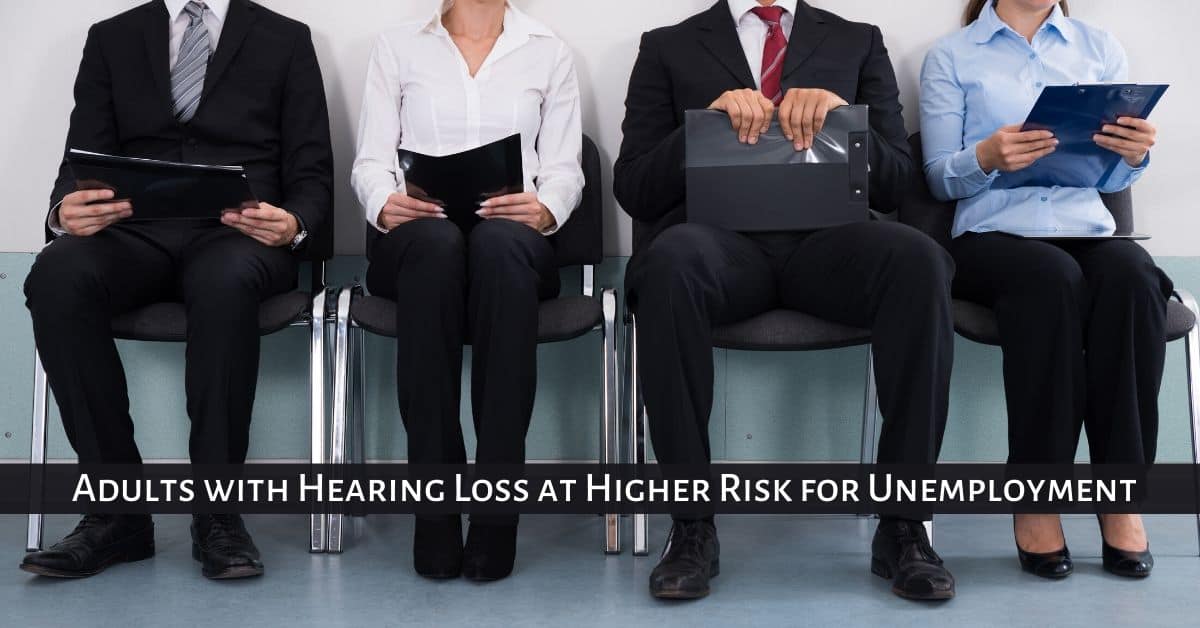
When you have hearing loss, you might have difficulty interacting with family and friends, and you might have started to experience some problems communicating at work. Adults with chronic hearing loss often struggle at work and have a higher risk of unemployment than adults with no hearing loss, according to a few recent reports.
Studies reveal a connection between hearing loss and unemployment.
The first study, led by researchers at Johns Hopkins University, used the National Health and Nutrition Examination Survey (NHANES), a nationally representative survey of 3,379 adults aged 20-69 years.
In addition to finding that those with hearing loss were likely to have lower education rates, accounting for other factors, they also found that people with hearing loss were almost twice as likely to be unemployed.
This extraordinary result was replicated in another study that came under the guidance of a different group of researchers from Johns Hopkins University. This research also looked at the difficulties at work caused by vision loss. They confirmed the finding that hearing loss was correlated with higher unemployment rates, but found an additional effect for those with issues in both their hearing and vision. This double effect leads to even higher unemployment rates among those in their study.
How do adults who experience hearing loss face higher levels of unemployment?
There are several reasons why hearing loss can lead to poorer outcomes at work.
Following conversations: coping with chronic hearing loss makes it challenging to understand work colleagues. You may be struggling to observe lunch break discussions with colleagues or stay abreast of the latest news. You’ll probably find it hard to remember what’s been said during meetings or a one-on-one interview with your boss.
Background noise difficulties: If you have hearing issues, you won’t hear well in high noise conditions. The ears and brain can’t differentiate between critical speech sounds and background noise.
Poor work performance: You may not be able to do your best job when you can not follow instructions or attend meetings, and workers with chronic hearing loss are more likely to make mistakes. They are often ignored and are more likely to be fired than their hearing peers.
What to do when you’re a job seeker
If you have a hearing impairment and are looking for a job, you can do a variety of things to improve your career prospects.
- Know your rights. The ADA and EEOC provide strict rules for what an employer can ask about to ensure that they are not rejected because of their lack of hearing. Nonetheless, an employer might inquire about the candidate’s capacity to perform the job’s essential functions.
- Use a hearing aid. Interviews are daunting enough, even before you consider your hearing loss! Research showed that those who use hearing aids to combat hearing loss have the same earning power as regular hearing colleagues. Using a pair in the weeks leading up to the interview will help you have one less thing to think about.
What to do in your current role
If you’re already in a role that you’re happy with, here are some ways you can perform at your best.
- Wear a hearing aid yet (again). It does so much for all sorts of situations in which you’ll find yourself at work.
- Trust in your skills. Know that you are not defined by your hearing loss. You are already an accomplished employee and deserve to be part of the team.
- Let others know about your hearing loss. You’ll be better prepared for any communication problems that you encounter at work. Inform your boss about your hearing impairment and how to interact correctly.
- Prepare. During meetings, be at your best by requesting an agenda in advance. Arrive early and pick a seat in the center, which gives you the best opportunity to hear everyone.
- Ask coworkers to drop it in an email: Written correspondence is the best medium for sufferers of hearing loss. Recommend that essential documents, such as emails, be sent in a visual format where possible.
- Advocate for yourself. Ask your boss for reasonable accommodations in the workplace. Present it in a way that shows how it will help them.
Dealing with hearing loss
Do you have hearing loss? Don’t let it impact your work or cause unemployment! Adults who use quality hearing aids to treat their hearing loss could have a much better time hearing at work. It could help you get the promotion you’ve been waiting for, and make sure you receive the salary you deserve. Contact us today for more information about getting a hearing aid.
